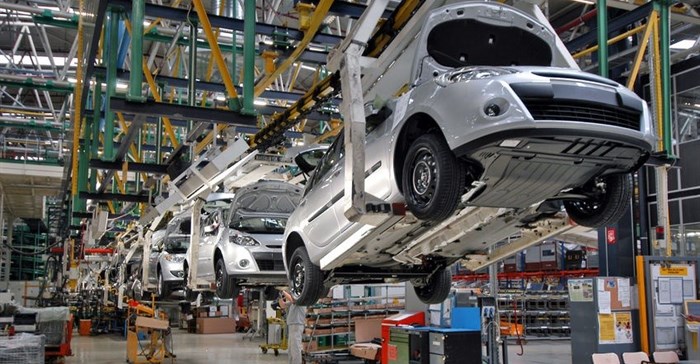Any lessening of government support for the motor industry could have drastic consequences by causing multinational companies to question the need to remain in SA, Volkswagen SA (VWSA) MD Thomas Schäfer has warned.
Despite the success of the 2013-2020 Automotive Production and Development Programme (APDP) in attracting billions of rand in foreign investment, discussions with the government had revealed some senior officials were arguing that resources set aside for APDP incentives could be better used for other economic priorities, he said at a briefing on Tuesday.
Vehicle and components manufacturers can claim back up to 30% of production-related investments, among other benefits. It is estimated the programme has so far attracted nearly R50bn in investments either spent or committed.
"SA accounts for only 0.6% of global vehicle production and we are not really cost-competitive," Schäfer said. "But a lot of the disadvantages are overcome by the APDP. If it went away, it would be the immediate end of the motor industry in SA."
He added that the amounts invested in SA were small in the context of global automotive spending and that companies could afford to walk away "without a moment's hesitation".
Black supplier development
Such a response could also be triggered by growing pressure on the industry to pursue broad-based black economic empowerment (B-BBEE), Schäfer said. Multinational motor companies had made clear long ago that there was no question of relinquishing shares in wholly-owned South African subsidiaries, so the main focus would be development of black suppliers.
But the government had been no help in this regard. "We asked for a supplier database as a starting point but government didn't have one," Schäfer said.
"We had to start from scratch. We looked for any kind of black company that might be able to supply the motor industry. We even looked at bicycle tyre companies in case one day they could produce car tyres.
"To meet government targets, VWSA alone needs 500 black suppliers. We could find only 41 - with no guarantee that they will be able to grow into what we need. We understand the need for B-BBEE but, as things stand today, the targets are unachievable," he said.
Kenyan production
VWSA recently signed a deal with the Kenyan government to export Polo Vivo cars built at the company's Uitenhage assembly plant in the Eastern Cape. The cars will be shipped partially disassembled to Kenya, then put back together at a factory near Nairobi. Production there will begin on 21 December - then stop almost immediately for the Christmas break.
"We promised to start this year and we will honour that," Schäfer said. "Full production will get under way in January."
VWSA will initially send up to 5,000 Vivo kits annually and the plan is for the Kenyan factory to eventually shift to full manufacture, including locally sourced components. Schäfer said other multinational motor companies were also eyeing Kenya and he predicted its scale could start to rival that of SA's within a decade.
With Nigeria already attracting heavy foreign investment to become a vehicle manufacturing gateway to West and Central Africa, Schaefer predicted Kenya could perform a similar role for East Africa. "The region has economic momentum," he said.
Like most of Africa, Kenya's car market was dominated by used imports, but the government was starting to tighten the screws on the maximum age of such vehicles. VWSA was also encouraging banks to make finance more readily available.
"Only 5% of vehicle sales in Kenya are financed," he said. "We will talk to local and international banks to make finance more readily available. Standard Bank is among those interested."






































